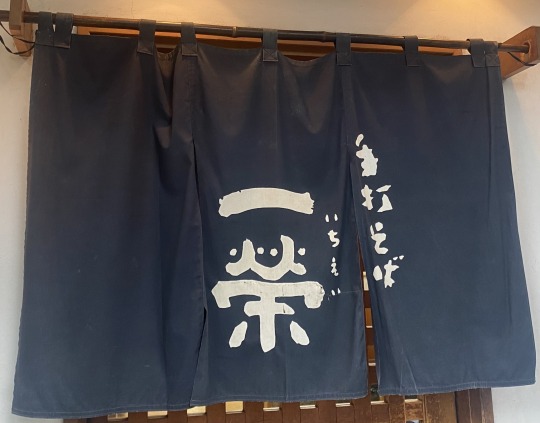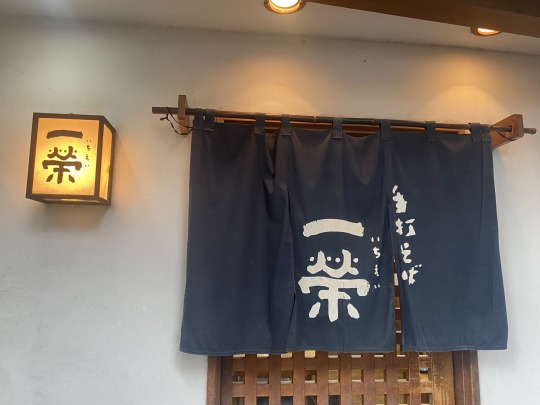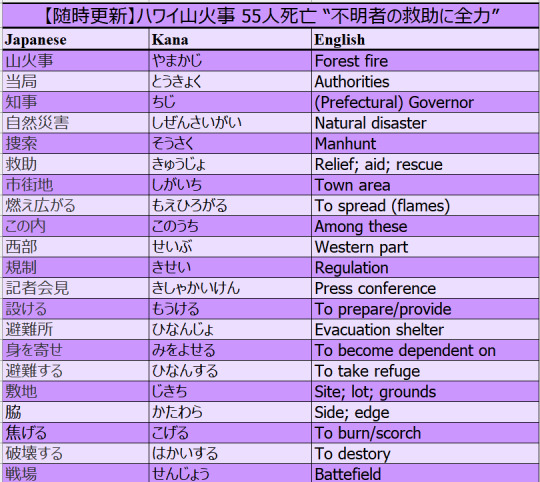Language studyblr blog, self-taught | Mainly JP and KR ★ I reblog and sometimes post resources ★
Don't wanna be here? Send us removal request.
Text
Language learning – Introductory tips for self taught beginners
Warning, this is a loooong read. Feel free to skip to the TL;DR at the end.
In this post, I will detail a few tips which have helped me (a self taught language hobbyist) with the beginning steps of learning languages such as English, Korean and Japanese. This is not a guide on how to achieve fluency quickly, it is meant to be an introduction to language learning. This is also based on my own experiences; feel free to disagree or correct me.
We will go over these points:
How do I start learning a language?
What should I use? Is an app better than online courses?
Do I learn grammar or vocabulary first?
How much should I study?
Should I practice immersion?
Where do I find resources/books?
I feel frustrated. / I am not learning anything. /This is too hard, maybe it's not for me.
How do I start learning a language?
This is the first thing you will ask yourself when you decide you want to start learning a language. Whether it is for work, for studying, traveling or just for fun, most people feel overwhelmed at the thought of how or where to start.
The truth is that there is no set path to start learning a language, but researching the language before studying can help relieve your worries over it and give you an idea of how to start. Keep in mind that languages which have different alphabets/writing systems (i.e. Japanese, Chinese, Arabic) take longer for a native Germanic/Romance language speaker (i.e. English, French) to learn and achieve fluency, and vice versa, so if you do not have a second language as of yet, consider choosing a Germanic/Romance language as a soft start. I'll detail a suggestion as to where to start in point 3.
What should I use? Is an app better than language courses?
The current language learning app ecosystem is a far cry from what it used to be (yes, I'm talking about Duolingo and Memrise), but they are still your main allies if you have a busy schedule and want to learn a language. However what I've found is that simply tapping away in an app and taking notes isn't enough – sometimes the apps don't explain certain grammar rules, or they're locked behind monthly paywalls. As such, you have to find the answers elsewhere.
Here are some things which will make your life and your studying much easier if you are self taught and on a budget: books on the language (for grammar, you can find PDFs online), language channels (for more thorough and practical explanations, YouTube is the main hub for it), and regular media in the language of your choosing (for vocabulary, it can range from music to series/movies). If you have a friend who speaks the language, or perhaps is learning it with you, that also works. In my opinion, learning is better when you have other people to share it with.
There are also websites such as japanesetest4you.com which compile words and their meanings, just like a dictionary. The one I've mentioned not only displays kanji and its meanings, but also shows its variants in Korean and Chinese. There are many others in this same vein for other languages.
Do I learn grammar or vocabulary first?
When learning a language, most courses and classes will focus on teaching you the grammar and the writing system, which while helpful, can sometimes feel like you are going nowhere, as you know how to build a sentence, but don't have words to form it with, or can't pronounce it correctly. This is a common problem among beginners (and sometimes even more experienced language learners), don't let it discourage you.
A personal example I like to use is: To say "the sky is blue", you have to first learn what the sky is, then learn the color blue, and then learn the structure to be able to say "the sky is blue". Vocabulary is just as important as learning the grammar rules in any language; don't limit yourself to only learning how to write. So the answer is: Build a small vocabulary, learn the grammar, and then apply it in practice. It doesn't have to be correct on the first try, we've all been there. Though people learn in different ways, so perhaps you might feel like the opposite works for you. That's also completely fine.
This is another point where engaging with the language's culture and media outside of classes comes to play. Even watching a TV program during your free time and writing down words is enough, since you're also practicing listening, which is also very important and looked over. Try incorporating pronunciation and listening into your studying routines.
How much should I study?
This is a point of much debate within language learning spaces because there is no answer for it. Some might learn a language in 3 months, others might learn it in 10 years, a few can learn it in 3 weeks. It depends on what language you've chosen and the time you are able to dedicate to the language.
The best tip I can give is: if you can dedicate even just 10-15 minutes of learning each day, you can achieve the results you desire. Of course, you should increase that amount if you're able to in the future, but it's already an effort.
Consider your schedule and refer back to the first point, as the time you'll take to achieve conversational/fluency levels can vary depending on the language you choose.
Should I practice immersion?
The common view of immersion is: "speak the language at every opportunity, only engage with media in that language, and write only in that language". This is what you'll see in some of those "I learned (language) in only 3 months" videos.
Let's be realistic though, no one can start speaking German at all times when they live in the US, or Spanish when they live in France, and you'll only feel more frustrated if you force yourself to watch k-dramas without subtitles and nothing else, expecting to absorb it through osmosis. And also, you only now started learning how to say "the sky is blue".
Immersion comes in many forms, though. If you listen to a song in the language you want to learn and read the lyrics while listening, that counts as immersion. If you write a few phrases describing your day in that language as a dynamic exercise, it also counts as immersion. Immersion is what says on the tin – immersing yourself in the language – but it shouldn't bring you unnecessary stress. Also, contrary to what some might say, I do recommend you use translators, if it helps you associate words with their meanings. Don't just rely on them, though, since Google Translate can be unreliable with certain translations and meanings.
Where do I find resources/books?
This requires digging around, but I recommend you check sites like as WebArchive and YouTube. If you can, buy the books online, or borrow some from your local library. I recommend looking for actual textbooks, mainly because some of them include tidbits about the culture itself, like Genki. If you're on a budget, Reddit has a few threads which recommend apps/books, but be very careful with downloading things from random Google Drives or other file hosting websites.
Tumblr is also a very good place for learning new vocabulary. I see some blogs dedicated to sharing kanji and grammar rules, and it can be good to follow such blogs to build your vocabulary.
I feel frustrated. / I'm not learning anything! / This is too hard, maybe this is not for me.
Rome wasn't built in one day, and you definitely won't learn a language in a month or two if you are someone who is in school or has a job with long working hours. YouTube has made language learning easy, but it also has given the illusion that if you follow X method or study an N number of hours, you'll achieve fluency. That is not the case. It fails to take into account the nature of the language, its grammar rules, the writing systems, and everything else.
You don't realize this, but you definitely didn't learn how to speak in just 3 months when you were a child. Everyone learns differently, some faster than others, some slower, some have more time to study, others don't. Some people have difficulty concentrating and don't know how to make learning more fun. All I can say is: don't give up. As long as you put in some effort, even if it seems insignificant to you, you can achieve your results.
Don't feel obligated to continue learning a language if it is bothering you, though. Remember you can always take a break and come back to it another time. Who knows, maybe even during that break, you'll still be learning new words, and feel more motivated to go back.
TL;DR: Language learning is something which is more accessible now than ever, but you might find yourself confused on where or even how to begin learning a language. The key tip for learning any language is to do research, gather resources, know your own limits and how much dedication, time and energy you can invest into learning, and most important of all, to have fun with it.
I hope this can help some beginners in their journey into language learning. Thank you for reading this far!
33 notes
·
View notes
Text
【語彙】フリマアプリ等
In the past year or so, I've sunk quite a lot of money in Japanese second hand goods. It's been quite a pleasant experience to browse through many well described offers where most of the time you get exactly what you want, in great condition and for cheap price.
Without further ado, I've compiled a list of useful vocabulary that one may encounter while shopping on Japanese online marketplaces or フリマアプリ.
General condition:
新品 - new item
中古品 - used item
未使用 - unused
未開封 - unopened, sealed
未視聴 - not played (CD, DVD)
開封済 - opened, unsealed
美品 - in mint condition
使用感 - visible signs of use
人の手に渡った - bought from someone else (ie. the person selling is not the first owner of the item)
帯付き - includes obi
特典付き - includes bonuses
Damages:
傷 or 痛み - general imperfections
汚れ - dirt, stains
染み or シミ - stain
皺 or シワ - wrinkle
擦れ or スレ - scratch
日焼け - sun discolouring
書き込み - writing, notes (in a book etc.)
Seller terms:
プロフィール必読 - please read my profile before purchase
即購入 or 即買い - immediate purchase (ie. without contacting the seller first)
値下げ交渉 - price negotiation
バラ売り - selling separately
まとめ売り - selling together
自宅保存 - stored at home
素人保存 - stored by an inexperienced person
確認済み - checked (f.ex. if the CD is playing well)
Phrases you may see in listings:
神経質な方はご遠慮ください。Please refrain from buying if you are sensitive to the item's condition.
読めればいいという方向け。Oriented at people who only care about reading the item (and don't mind the condition).
PCに取り込んで自宅保管しておりました。After ripping (the CD) it was stored at home.
暗所に保存しておりました。It was stored in a dark place.
再生に問題はありません。No problems with playing (CD, DVD).
ペット、喫煙者ございません。No pets or smokers in the household.
ご了承ください。Please accept it (the item, seller's terms etc.) as it is.
361 notes
·
View notes
Text
this · that · that over there · which (demonstrative adjectives)
(。•̀ᴗ-)✧ N5 Grammar [ことのは lesson 3.2]

we already saw これ, それ, あれ, どれ that are demonstrative pronouns. In this post we'll cover demonstrative adjectives. They are used with nouns. You can refer to a specific item without using a proper name.
note: these are always followed by a noun, so don't confuse them with the pronouns.
"this" with "この"
"この" is used if the item is located near the speaker but not near the listener.
example: この本 (ほん) ですか translation: is it this book?
"that" with "その"
"その" is used if the item's near the listener but not the speaker.
example: その辞書 (じしょ) ですか translation: is it that dictionary?
"that over there" with "あの"
"あの" is used if the item's far from both of them.
example: あの鞄(かばん)ですか translation: is that bag (over there)?
"which + noun" with "どの"
"どの" is an interrogative pronoun which is used for asking "which + (noun)?"
example: どのペンですか translation: which pen?
またね~@inkichan
꒰ა ˚₊ ✧・┈・╴﹕꒰ ᐢ。- ༝ -。ᐢ ꒱﹕╴・┈・𐑺 ‧₊˚໒꒱
50 notes
·
View notes
Text
紹介 self introduction
Hello, my name is Shalom. This blog will be a record of my language learning journey, specifically Japanese. I am going to take the JLPT N4 exam this December. I hope that I will be able to find a good and supportive language community here, if you are a Japanese langblr/studyblr please comment!
はじめまして。
私の名前はシャロームです。日本語を勉強し始めて二年になりますが、15歳の時に歴史映画を観てからずっと日本語に興味を持っていました。今年の12月に日本語能力試験N4を受験します。
日本文学を読むのが好きで、一番好きな作家は川上未映子さんですが、太宰治さんや村上春樹さんも好きです。他の作家さんにおすすめしてください!
趣味はハイキングとランニングとピラティスと執筆と読書です。日本の写真を見るのが大好きで、いつか日本で撮りたいと思っています。音楽を聴くのが好きで、特に日本と韓国の音楽が好きです。
よろしく
72 notes
·
View notes
Text
determinative form い-adjectives · いい and よい
(。•̀ᴗ-)✧N5 grammmar [ことのは lesson 10]

determinative form of い-adjectives
The い-adj has the determinative form. This serves to qualify the noun it accompanies.
The determinant precedes the determined noun. This is always the case in Japanese. Contrunction:
い-adjective + Noun
example: それは難 (むずか)しい 本 (ほん)です translation: that is a difficult book
い-adjectives: いい and よい
In Japanese there are two adjectives which mean "good": いい and よい. よい is used for sentences in the negative and the past.
it is good: いいです | it was good: よかったです it is not good: よくありません | it was not good: よくありませんでした
またね~@inkichan
꒰ა ˚₊ ✧・┈・╴﹕꒰ ᐢ。- ༝ -。ᐢ ꒱﹕╴・┈・𐑺 ‧₊˚໒꒱
46 notes
·
View notes
Text


I love the calligraphy at this soba shop, especially on the lantern. As you can see from the furigana, 一榮 is read Ichiei. I'm not sure if it's in use as a surname, but there's a variation, 一栄 Ichiei, that belongs to about 140 people in Japan. (And it has nothing to do with the famous expression 一期一会 (ichigo ichiei), meaning that every encounter is once-in-a-lifetime.)
一 means one, and it's read ひと-, ひと.つ, イチ, or イツ.
栄 is a jōyō kanji, and it means flourish, prosperity, honor, glory, or splendor. It can be read さか.える, -ば.え, は.える, え, エイ, or ヨウ. From the bottom up, the radicals are 木 tree, wa-crown 冖 (named for its resemblance to katakana ワ), and ⺌ (from 尚, meaning furthermore or in addition).
榮 is a variant of 栄 used only in proper nouns. It shares the same meaning and all the readings except ば.え. In place of the ⺌ , we have two flames 火. It reminds me of New England foliage with colors so intense it looks like it's on fire.
66 notes
·
View notes
Text
particle の · suffixes
(。•̀ᴗ-)✧ N5 grammar [ことのは lesson 5]

particle の
in general this particle is placed between two nouns. You need to add this particle to the end of the added noun to indicate that it is a modifier. "Noun 1 of Noun 2" in Japanese is expressed "Noun 2 の Noun 1". But this particle can be used more widely than the English "of". It also created adjectives, indicates positions, and makes adjectives or pronouns passive, etc.
possession
example: 私の本です translation: it's my book
location
example: 東京の会社(かいしゃ)です location: it is a company in Tokyo
nature, state
example:日本語の本です location: it's a Japanese book
material
example:木(き)の椅子(いす)です location: it's a wooden chair (made of wood)
suffixes さん, ちゃん and くん
さん - typically used after a name, surname or some social title like "director" or "store manager" it corresponds to Mr. and Miss.
ちゃん - typically used after girls' names, but it is also used for small children (either sex)
くん - typically used after boys' names. It usually refers to someone you know very well, to others of the same age or younger, or in other kinds of informal situation.
またね~@inkichan
꒰ა ˚₊ ✧・┈・╴﹕꒰ ᐢ。- ༝ -。ᐢ ꒱﹕╴・┈・𐑺 ‧₊˚໒꒱
44 notes
·
View notes
Text
ことわざ 15/?
ことわざ are Japanese proverbs, and I have listed some basic proverbs, their equivalents in English, and a rough translation of the meanings of the Japanese phrase.
There is a test for ことわざ called the ことわざ能力検定 (ことわざのうりょくけんてい) and these are the phrases that appear in level 9 or 9級 (10 being the lowest level). For the time being, try one or two of these out the next time you speak with a native Japanese speaker!
ことわざ (こと検9級): 11 | 12 | 13 | 14 More ことわざ (こと検10級): 1 | 2 | 3 | 4 | 5 | 6 | 7 | 8 | 9 | 10

長い目で見る
ながいめでみる
to look at the long term/big picture
look with a long eye
二人三脚
ににんさんきゃく
① a 3-legged race ② a team effort
two people tied together to make three legs
二の足を踏む
にのあしをふむ
to second-guess yourself
instead of stepping forward, hesitate and step on your 2nd foot
二枚舌を使う
にまいじたをつかう
to speak with forked tongue
speak using two tongues
寝耳に水
ねみみにみず
a complete and total shock
like someone dripped water in your ear while you sleep
喉から手が出る
のどからてがでる
to want something so bad you can taste it
to want something so bad a hand emerges from your throat
喉元過ぎれば熱さ忘れる
のどもとすぎればあつさわすれる
danger gone, God forgotten
once hot liquid passes the base of your throat, you forget the pain
102 notes
·
View notes
Text
studyblr intro!!
charlie, he/him
high school student
learning german and japanese
interests:
music! i've played piano for almost 8 years now, and i'm almost always listening to something
languages, i'm taking german for school, but i've been learning japanese on my own time
i've been trying to read more again, i'd love any recommendations :)
movies- i have been trying to pay more attention to how films are made and what techniques they use, but i do also watch them to relax
i'm starting school again soon, so i want to use this to stay on top of things. i'm not always doing the best mentally, so i want to see if doing this helps at all.
i'd love to make friends here, so feel free to interact! sorry if i'm doing anything wrong, i haven't really done anything like this before
#welcome to the community charlie!#do your best always#you're already doing great!#studyblr#studyblr introduction#studyblr intro post
22 notes
·
View notes
Text
17年前の今日ぱうひろは私達の家族になりました。
17 years ago today Pauhiro became our family.
#ぱうひろ #猫 #ねこ #ネコ #トラネコ #とらねこ #キジトラ #cat #tabby #striped #photography #写真 #Pauhiro

10 notes
·
View notes
Text
personal pronouns
(。•̀ᴗ-)✧ n5 grammar [kotonoha lesson 6]

Personal pronouns are often omitted. In real life, instead of pronouns, names are used. あなた is used only when you don't know the name of the person you're talking to.
Also かれ and かのじょ are not often used to say he and she beacuse they are colloquial ways of saying boyfriend and girlfriend. In an everyday situation, we should use この人 (ひと), その人 and あの人 (this/that person) to indicate people whom we don't know well and to whom me need to show respect.

またね~@inkichan
꒰ა ˚₊ ✧・┈・╴﹕꒰ ᐢ。- ༝ -。ᐢ ꒱﹕╴・┈・𐑺 ‧₊˚໒꒱
29 notes
·
View notes
Text
"to be" · "not to be" · subject omission
(。•̀ᴗ-)✧ N5 grammar [ことのは lesson 1]

"to be" using "は … です"
in Japanese we use this structure to say "I am ...":
[noun 1] + は + [noun 2] + です
it means: [noun 1] is [noun 2]
は - particle used to mark the topic of the sentence
です- particle that means "to be"
example: 私はアミリカ人です
translation: I am American [わたし は あめりかじん です]
"not to be" with "ではありません"
when expressing "not to be" we should use this structure:
[noun 1] + は + [noun 2] + ではありません
it means: [noun 1] is not [noun 2]
example: 私は日本人ではありません
translation: I'm not Japanese [わたし は にほんじん ではありません]
Omitting the topic
In English we must put the topic/subject but in Japanese is common to omit it when it is clear throughout the conversation. So the structure we just saw "[noun 1] + は + [noun 2] + です" is often shortened into:
[noun] + です (or negative)
example: is asked what nationality we are we can simply say アミリカ人です
translation: (I) am American
またね~@inkichan
꒰ა ˚₊ ✧・┈・╴﹕꒰ ᐢ。- ༝ -。ᐢ ꒱﹕╴・┈・𐑺 ‧₊˚໒꒱
33 notes
·
View notes
Text
this · that · that over there · which (demonstrative pronouns)
(。•̀ᴗ-)✧ N5 grammar [ことのは lesson 3.1]

"this" with "これ"
"これ" is a pronoun, it can be translated as "this" and indicates a thing close to the speaker (distance-wise). As in English, it can act as the subject or the object of any given sentence.
example: これは寿司です。
translation: this is sushi. (これ は すし です)
note: in Japanese it is considered rude to use "これ" referring to a person.
"that" with "それ"
"それ" is a pronoun, it can be translated as "that" and indicates a thing slightly far from the speaker (distance-wise). As in English, it can act as the subject or the object of any given sentence.
note: in Japanese it is considered rude to use "それ" referring to a person.
"that over there" with "あれ"
the difference between "それ" and "あれ" is that あれ refers to something that is very far from the speaker, like something across the street or in the sky.
example: あれは車です
translation: that (over there) is a car



infographic
"which" with "どれ"
"どれ" means "which" or "which one" and the structure for using this pronoun is:
[something] + は + どれですか
which one is [something]?
example: ワサビはどれですか
translation: which one is wasabi?
note 1: in Japanese it is considered rude to use "どれ" referring to a person.
note 2: when using this structure the position of どれ and [something] is not interchangeable.
またね~@inkichan
꒰ა ˚₊ ✧・┈・╴﹕꒰ ᐢ。- ༝ -。ᐢ ꒱﹕╴・┈・𐑺 ‧₊˚໒꒱
10 notes
·
View notes
Text
Basic particles · part 2
(。•̀ᴗ-)✧ N5 grammar

Japanese particles are suffixes or short words in Japanese grammar that immediately follow the modified noun, verb, adjective or sentence. This is just a brief list in alphabetical order, with their grammar meaning.
んです - to explain something, show emphasis
ね - isn't it? right? eh?
に - destination particle, in, at, on, to
に/へ - to (indicates direction/destination)
の - possessive particle
のです - to explain something, show emphasis
ので - because of, given that, since ~
お/ご - polite marker, honorific prefix particle
を (o/wo) - object market particle
たり~たり - do such things as A and B
part 1 | part 2 | part 3 | source
This is just a brief list, I'll do more in depth post about each particle in the future! I also recommend checking the source since it's a great free resource website!
またね~@inkichan
꒰ა ˚₊ ✧・┈・╴﹕꒰ ᐢ。- ༝ -。ᐢ ꒱﹕╴・┈・𐑺 ‧₊˚໒꒱
12 notes
·
View notes
Text
緩和
かんわ
relief; mitigation; alleviation; relaxation (of restrictions, tensions, etc.); easing; softening
需給関係が緩和している。 じゅきゅう かんけい が かんわ して いる。 The supply-demand balance is relaxing.

48 notes
·
View notes
Text
questions · positive and negative replies
(。•̀ᴗ-)✧ N5 grammar

indicating a question with "か"
Questions in Japanese are easily expressed with the particle "か" and it is used the same way as the English question mark. A phrase ending with this particle is the Japanese equivalent to a question in English. In Japanese, there's no need to rearrange the sentence structure, simply add the question particle.
example: あなたは日本人です (you are japanese) will become → あなたは日本人ですか (are you japanese?)
note 1: in formal documents or written japanese, there should be a period (。) at the end of a question; in everyday Japanese, both periods and question marks work.
note 2: when asking a question the particle should be said with a rising tone.
affirmative replies with "そうです"
"そうです" is a compound phrase and means "right" or "that is so". It is usually used after "はい" (yes) and can also soften the tone when giving a positive answer.
example: はい、そうです。
translation: yes, that is so.
note: Japanese people tend to add another phrase following "そうです", expressing further confirmation
negative replies with "違います"
When denying something or telling someone something is not true, the compound phrase "違います" (ちがいます) is used. It is often used after "いいえ" (no).
example: いいえ、違います。
translation: no, that's not so.
note: 違います can be followed by other sentences clarifying the negation, similarly to そうです
またね~@inkichan
꒰ა ˚₊ ✧・┈・╴﹕꒰ ᐢ。- ༝ -。ᐢ ꒱﹕╴・┈・𐑺 ‧₊˚໒꒱
108 notes
·
View notes
Text

2. 【随時更新】ハワイ山火事 55人死亡 “不明者の救助に全力” Pt.1
This article can be accessed from the linked title above. It contains vocabulary for the first section of the article as it's a long article.
I am sure everyone has heard about the horrible fires in Maui. It is incredibly devastating. Here are some resources if you would like to help out from afar:
Food bank
Humane Society
For Children
For Women
Maui Strong Fund
16 notes
·
View notes